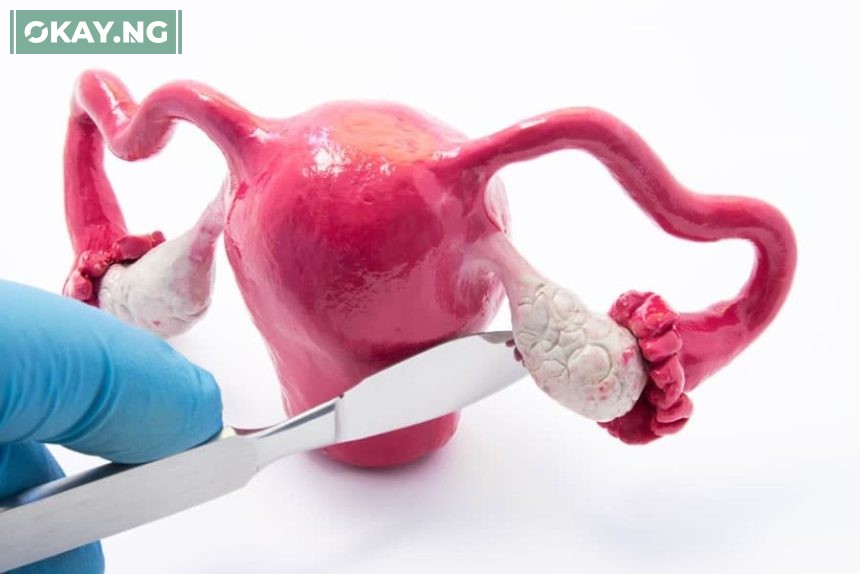Polycystic ovary syndrome (PCOS) is a common hormonal disorder that affects women of reproductive age. It can cause irregular periods, excess hair growth, acne, infertility, and other health problems.
Contents
In this article, we will answer some frequently asked questions about PCOS and provide some tips on how to manage it.
What is PCOS and what causes it?
- PCOS is a condition where the ovaries produce too many androgens, which are male hormones that normally occur in small amounts in women.
- Androgens interfere with the development and release of eggs from the ovaries, leading to cysts (fluid-filled sacs) on the ovaries, irregular or absent ovulation, and menstrual cycles.
- The exact cause of PCOS is unknown, but it may involve genetic, environmental, and lifestyle factors. Some possible risk factors include obesity, insulin resistance, inflammation, and exposure to endocrine-disrupting chemicals.
What are the symptoms of PCOS?
- The symptoms of PCOS vary from person to person, but some common ones include:
- Irregular, infrequent, or prolonged periods, or no periods at all
- Excess facial and body hair, especially on the chin, chest, back, and abdomen
- Acne, oily skin, and dandruff
- Thinning hair or hair loss on the scalp
- Weight gain or difficulty losing weight
- Dark patches of skin on the neck, armpits, groin, or breasts
- Skin tags, which are small, flesh-colored growths on the skin
- Anxiety, depression, or mood swings
- Reduced fertility or difficulty getting pregnant
How is PCOS diagnosed?
- There is no single test for PCOS, but a doctor may use a combination of methods to diagnose it, such as:
- Medical history, including menstrual cycle, symptoms, family history, and medications
- Physical examination, including checking for signs of excess hair growth, acne, and obesity
- Blood tests, to measure hormone levels, blood sugar, cholesterol, and other markers
- Ultrasound, to look for cysts on the ovaries or other abnormalities in the uterus or fallopian tubes
- A diagnosis of PCOS is usually made when a woman has at least two of the following criteria:
- Irregular or absent periods
- High levels of androgens or signs of excess androgen activity
- Polycystic ovaries on ultrasound
How is PCOS treated?
- There is no cure for PCOS, but the symptoms and complications can be managed with various treatments, depending on the individual’s goals and preferences. Some possible treatments include:
- Hormonal birth control pills, patches, injections, or implants, to regulate periods, lower androgen levels, and prevent pregnancy
- Anti-androgen medications, such as spironolactone or finasteride, to reduce hair growth and acne
- Metformin, a diabetes drug, to improve insulin sensitivity and lower blood sugar
- Clomiphene citrate, letrozole, or gonadotropins, fertility drugs, to stimulate ovulation and increase the chances of pregnancy
- Surgery, such as laparoscopic ovarian drilling or wedge resection, to remove or destroy parts of the ovaries that produce excess androgens
- Lifestyle changes, such as eating a healthy diet, exercising regularly, losing weight, managing stress, and quitting smoking, to improve overall health and well-being
What are the health risks of PCOS?
- PCOS can increase the risk of developing certain long-term health problems, such as:
- Type 2 diabetes, a condition where the body cannot use insulin properly to control blood sugar
- Cardiovascular disease, such as high blood pressure, high cholesterol, heart attack, and stroke
- Endometrial cancer, a type of cancer that affects the lining of the uterus
- Sleep apnea, a disorder where breathing stops and starts during sleep
- Depression, anxiety, and eating disorders, which can affect mental health and quality of life
- Nonalcoholic fatty liver disease, a condition where fat builds up in the liver and causes inflammation and damage
How can I cope with PCOS?
- Living with PCOS can be challenging, but there are some strategies that can help you cope, such as:
- Educating yourself about PCOS and staying informed about the latest research and treatments
- Seeking professional help from a doctor, a dietitian, a therapist, or other specialists who can provide guidance and support
- Joining a support group, either online or in person, where you can share your experiences and feelings with other women who have PCOS
- Practicing self-care, such as getting enough sleep, relaxing, meditating, or doing something you enjoy
- Being positive and optimistic, and focusing on your strengths and achievements rather than your flaws and failures











